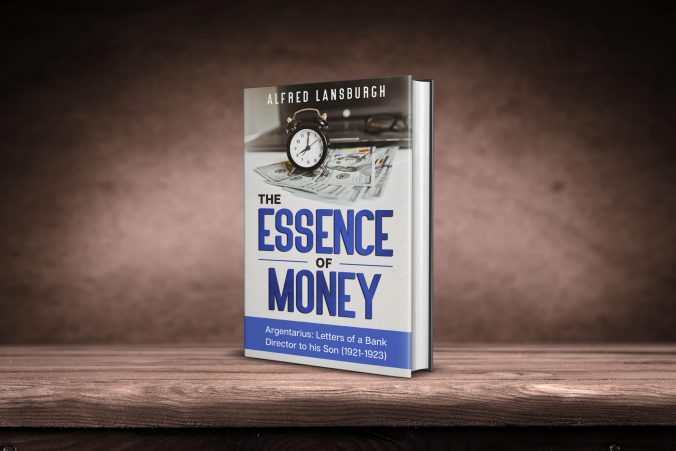Can there be too little Money?
No, as Argentarius explains, this is a ridiculous notion. Here are a few highlights from today’s letter:
In the first paragraph, Lansburgh addresses the common misunderstanding that money supply must be growing, if the economy grows, with a brilliant analogy. He then exposes the real intention of those crying for more money, namely that they want to gain more than their fair share of the purchasing power.
As old as money, dear James, is the complaint of people that there is ‘too little money’. This is a misunderstanding that I dare not hope will ever completely disappear from the world. It will probably only ever be a very few people who realise that ‘too little money’ is an absurdity. Money is the scale according to which the available goods are distributed among the population, and one can only increase the individual portions of goods by increasing the quantity of goods, but not by lengthening the scale. Whoever complains that he has too little money, in reality complains only that he has not sold enough goods or services and has therefore only been able to procure a small portion of the available quantity of goods.
Alfred Lansburgh: The Essence of Money – Part i. On money
Next he tackles the issue of why Gold is valuable, which is much different, from what Gold bugs claim to this day.
The actual superiority of gold money – in the eastern part of the world of silver money – has a far deeper cause than the whim or obstinacy of the great masses. The relative stability of value of gold money is rather due to the fact that the production of such money is beyond the arbitrary power of the state.
Alfred Lansburgh: The Essence of Money – Part i. On money
Argentarius then proceeds to dissect the “Gold Standard” further and unknowingly presents the case on why Bitcoin will be better money than Gold almost a century after his writing.
Namely, that it is only produced by performance.
The advantages of Bitcoin over Gold here are twofold:
1. Golds total supply is not transparent, so Banks storing Gold can cheat.
2. New technologies (mining machines, asteroid mining) can make the production of Gold easier, while Bitcoin’s difficulty adjustment ensures that supply increases predictably.
The requirement that performance and only performance gives rise to money is ideally fulfilled in the case of gold money (or money fully backed by gold). Such money can never produce more than is justified and needed by human intercourse, which exchanges performance for performance. And since the quantity of money, or the relation between this quantity and the services, decides on the purchasing power, on the ‘value’ of the money, gold money, in which the quantity or the relation cannot undergo any arbitrary shift, is stable in value. Exactly as stable in value, however, would be any other money that arises exclusively from performance, that is produced by circulation itself and is not forced upon circulation from outside according to any principles whatsoever.
Alfred Lansburgh: The Essence of Money – Part i. On money
Finally, Lansburgh makes the case, for why central banks are not only unnecessary, but outright dangerous institutions.
The privilege of all central banks is thus based on the twofold error that the ‘value’ of money has nothing to do with the amount of money in circulation in the country, and that only gold, or the possibility of exchanging it for gold, gives money its stability of value. Whereas in reality it is just the other way round: Gold as such has no influence on the ‘value of money’, whereas the money supply has the sole influence.
That is why, my dear fellow, all central banks without exception have failed as soon as they wanted to put it to the test and make a considerably increased quantity of notes available for circulation – for instance in war or in a crisis.
Alfred Lansburgh: The Essence of Money – Part i. On money
If you want to hear the full reading of this letter for free, you can do so on YouTube.
Or you can get the full version of the book on Amazon.

